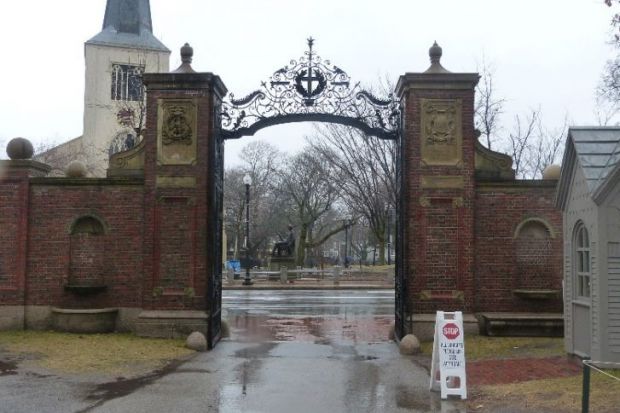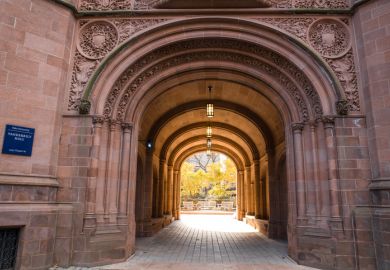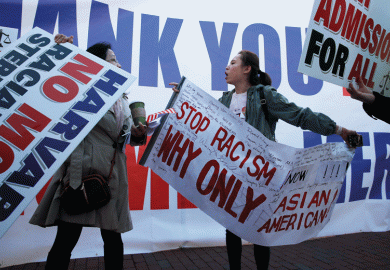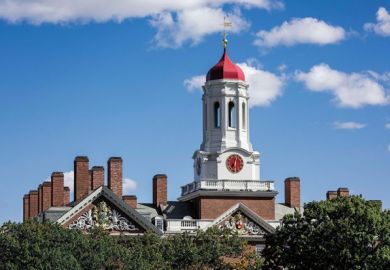The US Supreme Court has put off its much-anticipated decision over how to handle the Harvard affirmative action admissions case, a move experts have taken as a largely positive sign for equity in higher education.
Harvard successfully defended at trial its policy for ensuring racial diversity in its undergraduate student body, leaving the Supreme Court and its 6-3 conservative majority the question of whether to overturn it.
But rather than place the case on its docket at its first opportunity, the nation’s top court has asked the Biden administration to offer its thoughts on whether it should hear the case or let Harvard’s victory stand.
The action serves to keep the politically charged case alive. Yet it also represents a standard practice that experts saw as easing fears that a Supreme Court that has been given a heavily conservative majority by the Trump administration could try to hastily reverse past approvals of affirmative action.
The court’s decision “demonstrates thoughtful and responsible decision-making”, said Marvin Krislov, the president of Pace University, who as general counsel at the University of Michigan led a successful Supreme Court defence of Michigan’s affirmative action policy.
The Supreme Court’s move, said Laurence Tribe, an emeritus professor of law at Harvard, was not surprising, as it will give the court both a better read of the post-Trump political situation and more time to consider its next step.
“All the speculation about what it might tell us about the leanings of the justices who voted to seek those views is quite naive,” said Professor Tribe, who has argued dozens of cases before the Supreme Court.
The Harvard case, first brought in 2014, was among a series filed by a conservative group, Students for Fair Admissions, that has been fighting efforts by selective universities to choose racially balanced student bodies.
To fight Harvard, the group tapped for its lead plaintiff an Asian American student who was denied admission to the Ivy League institution and blamed Harvard policies that aided the entry of black and other minority students.
Harvard won at the trial level after demonstrating that its practices met the standard the Supreme Court has set in the past, allowing institutions to consider race in admissions as long as it is not a sole deciding factor.
The Trump administration nevertheless had sided with Students for Fair Admissions, saying that Harvard and its admissions practices had repeatedly harmed Asian American students through an “overt engineering of racial stasis” not allowed by the court.
The Biden administration, by comparison, has repeatedly made clear its commitment to improving racial equity. Within weeks of taking office, the Justice Department dropped a lawsuit initiated by the Trump administration that had accused Yale University of discriminating against white and Asian American applicants.
Register to continue
Why register?
- Registration is free and only takes a moment
- Once registered, you can read 3 articles a month
- Sign up for our newsletter
Subscribe
Or subscribe for unlimited access to:
- Unlimited access to news, views, insights & reviews
- Digital editions
- Digital access to THE’s university and college rankings analysis
Already registered or a current subscriber? Login








